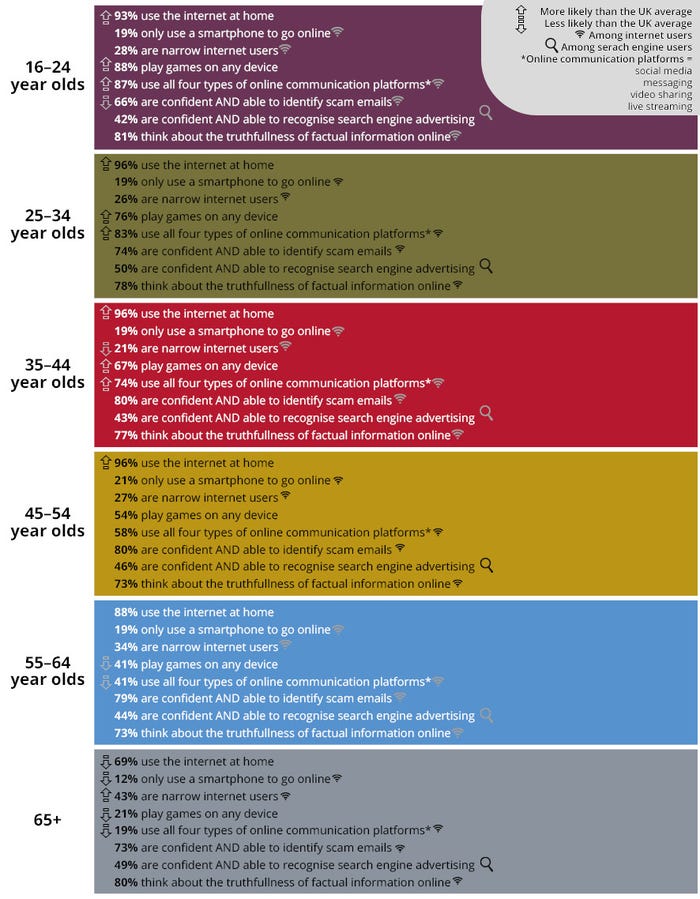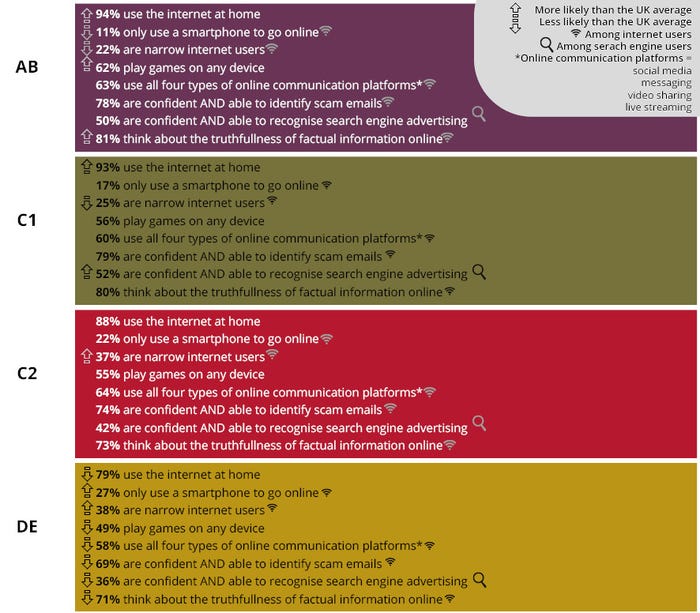UK digital exclusion report is vague and superficial
A UK parliamentary committee has criticised the lack of government strategy to tackle digital exclusion but contributes little of use to the matter.
June 30, 2023

A UK parliamentary committee has criticised the lack of government strategy to tackle digital exclusion but contributes little of use to the matter.
The report insists there are high levels of digital exclusion but struggles to define the term and is sloppy with its metrics. For example, the press release claims an unlikely 7 million households have no broadband or mobile internet access but the full report (point 8) states that figure as a more plausible 1.7 million. It also leads with the false dichotomy of conflating digital exclusion with the UK’s apparent ambition to be the centre of AI regulation internationally.
“The government has bold ambitions to make the UK a technology superpower and centre of AI development, but we can’t deliver an exciting digital future when five million workers are under skilled in digital and nearly two and half million people still can’t complete a single basic digital task,” said Baroness Stowell of Beeston, Chair of the Committee behind the report.
“Tackling digital exclusion isn’t as sexy as searching for the next tech unicorn, but we can’t compete as a global player without getting the basics right. We have found a distinct lack of leadership in Government to tackle this issue. It is shocking that a digital inclusion strategy has not been produced since 2014 and the Government sees no need for a new one. It is vital we get a grip of this now.”
She goes on to talk about social tariffs, recommending VAT be scrapped on them, and general IT education. This is backed up by some more stats suggesting millions of people don’t know which side of a smartphone has a screen on it. The VAT point is well made, although it’s debatable how much difference it would make to people who can’t afford broadband. Any education is obviously a good thing, but the threshold of those ‘acutely under skilled in basic digital skills’ is unclear, as is the necessity of absolutely everyone being above it.
Here are a couple of tables from the report that indicate how it assesses digital competence and how that plays out by age and socio-economic background.


Meanwhile the controversial Online Safety Bill continues to crawl through UK parliament. The latest update includes further protections for children that are hard to argue with but more contentious is the confirmation that individual tech executives will be made legally liable for their enforcement. This will ensure internet platforms err on the side of extreme censorship to avoid dawn raids from low-hanging-fruit-chasing coppers.
This dynamic is further assured by the continued lack of clarity over what constitutes ‘harm’ and there is no mention of the absurd ‘legal but harmful’ provision. Also unresolved is the matter of end-to-end encryption, which Apple has joined the chorus of tech companies warning of the dangers of compromising. If this clumsy legislation is anything to go by it seems the first focus for improving digital skills should be the government itself.
Get the latest news straight to your inbox. Register for the Telecoms.com newsletter here.
About the Author(s)
You May Also Like











_1.jpg?width=300&auto=webp&quality=80&disable=upscale)


.png?width=800&auto=webp&quality=80&disable=upscale)